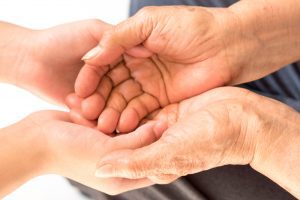 Do you have a loved one who is getting older, maybe even showing signs of dementia? Have you hired help for them or considered placement for them in a residential facility?
Do you have a loved one who is getting older, maybe even showing signs of dementia? Have you hired help for them or considered placement for them in a residential facility?
Then please step up and be sure to take the appropriate precautions to make sure they don’t become one of the MILLIONS of American seniors who have been taken advantage of financially by opportunistic criminals or even worse, trusted caregivers.
According to Adult Protective Services, 1 in 20 older adults have reported some sort of financial mistreatment in the recent past.
Ways to prevent elder financial abuse:
- Remove all checkbooks from the home so that the person cannot unwittingly have a check stolen or be duped into writing checks. If they require a check for a regular helper, either arrange to have one check at a time given to them, or create electronic payments that don’t involve the senior. Decide together what is the largest amount of check that the person can write without discussing with you and/or how much cash they can have at home.
- Take as many credit and debit cards as you can out of the home. You can leave one low limit credit card if necessary for emergencies.
- Have all financial mail forwarded so that no mail which includes information about retirement income, bank accounts, social security numbers, Medicare or taxes comes to the house.
- Make arrangements for the computer. Lots of older people have unsecured significant information on their home computer, especially if they have used it for bill paying. Copy files onto a portable device and remove the files from the desktop or laptop if they are no longer necessary on the person’s computer.
- Monitor computer use and email, too. If credit cards are removed from the house, then less damage can be done on the computer, but do monitor the email and web surfing to make sure the person isn’t giving away private information or divulging anything that would harm them (like telling a stranger when they are alone, for instance).
- Place an inconspicuous hidden camera to watch the computer screen to be sure that caregivers aren’t trying to access the computer.
- Make an inventory of valuables and photograph them. Consider moving some of the values to another location or to a safe deposit box.
- Be sure that the elder person knows how to use the phone and is still appropriately doing so.
- Talk to your loved one about the financial scams out there (a person pretending to be a grandchild needing money, people posing as workers who want inspect the property but end up stealing things, people posing as charitable workers and asking for donations, lottery scams). Try to role play with them and see what they would do if they encountered these situations.
- Door safety. Encourage your loved one to only let in people they know well. You can install software that alerts you when people arrive on their doorstep, so you can also observe and intervene if necessary.
- Make sure that all accounts are held jointly with the senior so you can be apprised if anybody else tries to get their name on the account. That is an immediate red flag and grounds for firing and reporting to Adult Protective Services.
- Watch in-home caregivers like a hawk! When they run an errand, do they bring the change back to the senior? Are they trying to use extra checks to pay their own bills? Are their timesheets true or falsified (typically these have to be signed by the senior)? Are they doing their job or are they ignoring the senior and collecting a check?
Seniors can be vulnerable physically and financially. It is up to us to protect them and be sure they aren’t victimized financially, which could affect their standard of living, their self esteem, their mental health and even their physical health.
